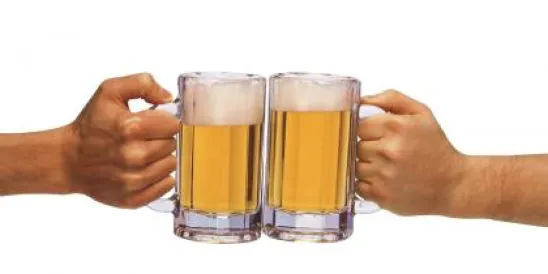Anheuser-Busch and Molson Coors produce some of the best-selling light beers in the United States — Bud Light, and Miller Lite and Coors Light, respectively — and regularly attack each other with witty ad campaigns. During Super Bowl LIII, Anheuser-Busch unveiled an advertisement campaign focused on the idea that Bud Light is made using rice as opposed to corn syrup. The Bud Light advertisements called attention to Miller Lite and Coors Light’s use of corn syrup as a source of sugar for the fermentation process. In response, Molson Coors advertised that its beer tastes better because of the corn syrup, which is not the same as high-fructose corn syrup used in other consumer products. Molson Coors also filed a lawsuit arguing that Anheuser-Busch violated Section 43 of the Lanham Act “by implying that a product made from corn syrup also contains corn syrup.”
Section 43 of the Lanham Act deals with false advertising and states that “[a]ny person who, on or in connection with any goods or services, or any container for goods, uses in commerce any word, term, name, symbol, or device, or any combination thereof, or any false designation of origin, false or misleading description of fact, or false or misleading representation of fact, which in commercial advertising or promotion, misrepresents the nature, characteristics, qualities, or geographic origin of his or her or another person’s goods, services, or commercial activities, shall be liable in a civil action by any person who believes that he or she is or is likely to be damaged by such act.” After Super Bowl LIII, Molson Coors filed a federal lawsuit claiming Anheuser Busch’s high-profile ads duped consumers into thinking that Miller Lite and Coors Light contained corn syrup, when in reality corn syrup is merely used as a “brewing fermentation aid” that does not end up in the final product. Molson Coors Bev. Co. USA LLC v. Anheuser-Busch Cos., LLC, 957 F.3d 837 (7th Cir. 2020).
The district court found that Anheuser Busch’s did not violate the Lanham Act and Molson Coors appealed to the Seventh Circuit. The appellate court framed the issue as a simple one: whether the true statement made in Anheuser-Busch’s advertisements—“their beer is made using corn syrup and ours isn’t”—wrongly implies that “their beer contains corn syrup.”
Molson Coors acknowledged that both Miller Lite and Coors Light are made using corn syrup and that Bud Light is not. Molson also acknowledged that corn syrup is listed as an ingredient in both Miller Lite and Coors Light. Molson, however, insisted that the list of ingredients is not the same as what the finished product “contains.” The Seventh Circuit found that although it is possible for an ingredient list to be treated as “inputs” instead of a list of what is in the finished product, the common usage of an ingredients list equates to the constituents of the product. Additionally, Anheuser-Busch never advertised that the rival products “contain” corn syrup, but consumers could infer as much from the statements made. But the Seventh Circuit found that consumers could infer the same thing from Molson’s own ingredient list. The court could not hold that it was false or misleading for a rival to make a statement that a competitor makes about itself.
In rejecting the false advertising claims, the appeals court said Molson Coors “brought this problem on itself” by listing corn syrup in its ingredients. Whether the use of corn syrup is a bad thing is for “consumers rather than the judiciary to decide.” The Seventh Circuit ruled that Anheuser-Busch did not violate the Lanham Act’s ban on false advertising by running Bud Light ads that mocked Miller Lite and Coors Light for using corn syrup. The court noted that “[l]itigation should not be a substitute for competition in the market,” which is what Molson Coors was trying to do in this case. The court even seemed to suggest that “[i]f Molson Coors does not like the sneering tone of Anheuser-Busch’s ads, it can mock Bud Light in return.”



 />i
/>i
